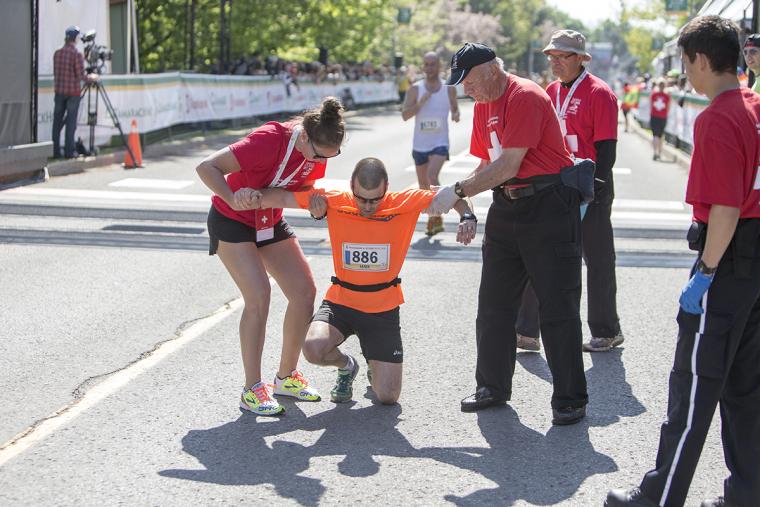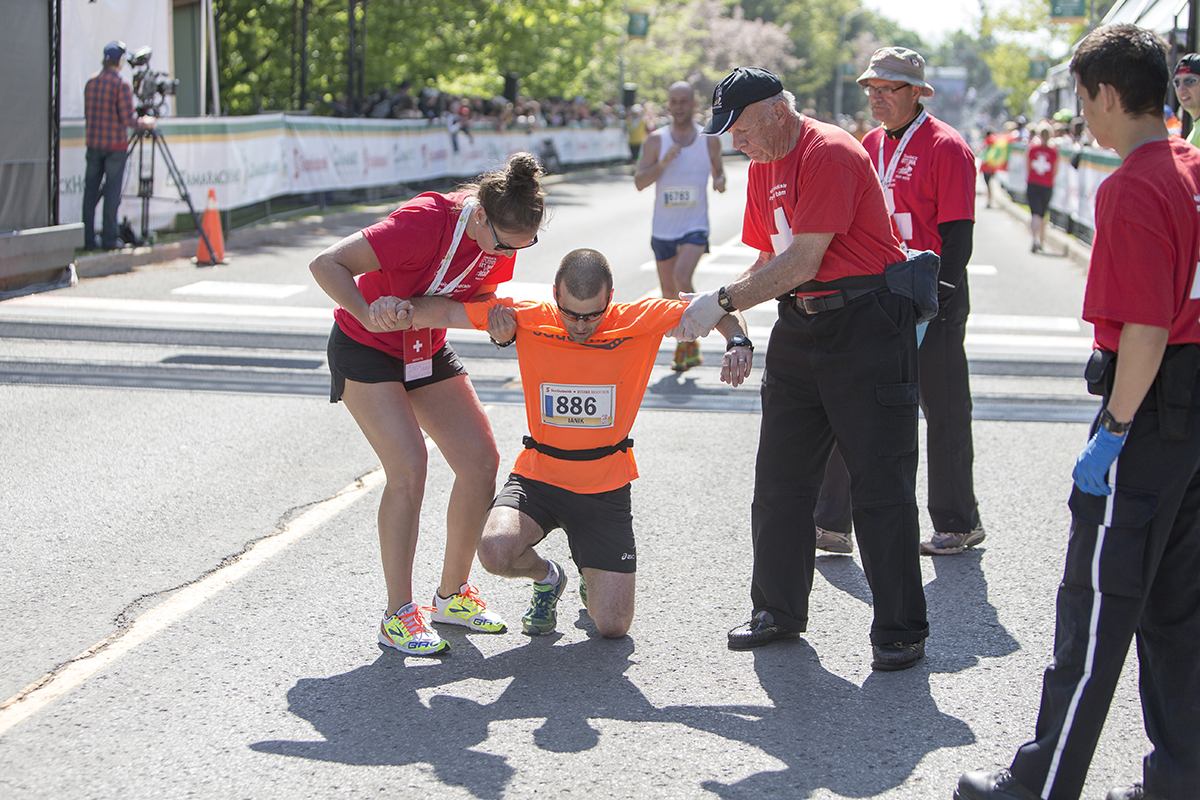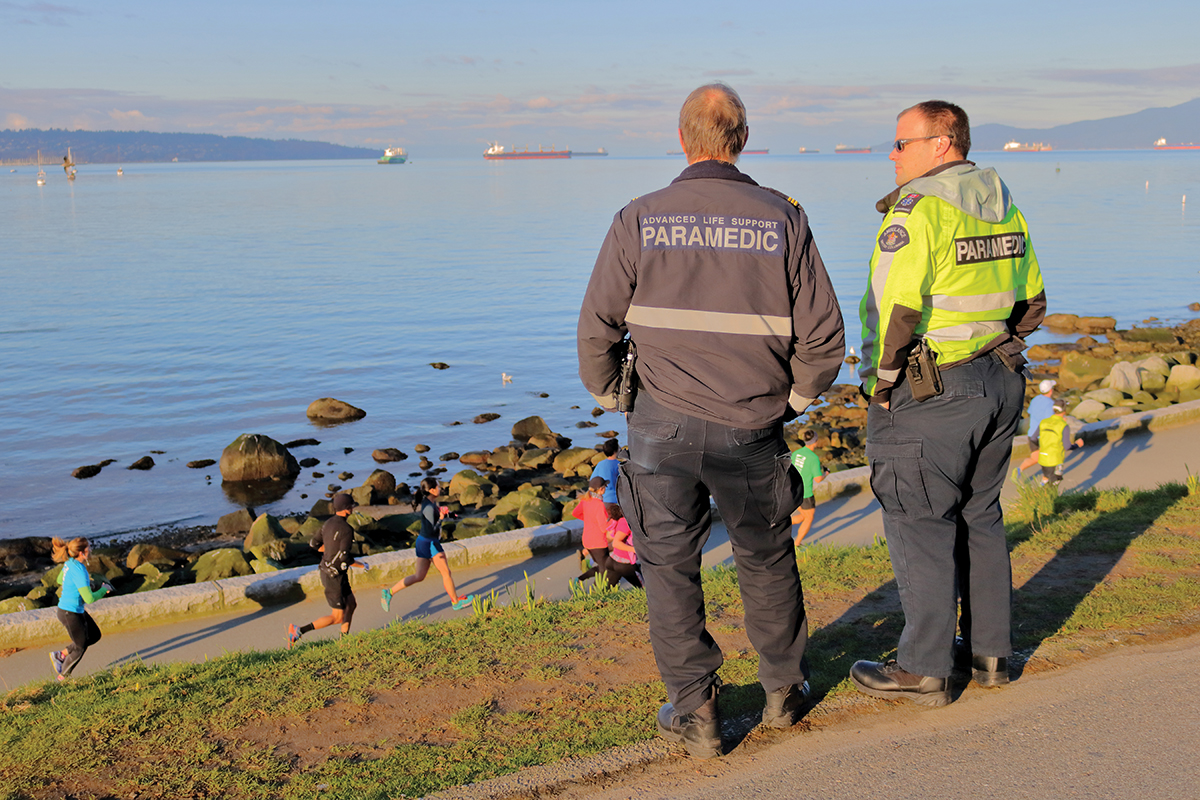

Because University Hospitals has been tapped to serve as the Official Medical Services Provider of the 2018 and 2019 USA Triathlon Age Group National Championships (both to be held in Cleveland, where we are located) – and because we have been the medical provider for many other events, including the Cleveland Marathon, Cleveland Triathlon and First Energy Stadium, Home of the Cleveland Browns – we have the experience and expertise with developing effective medical operations plans. Here are some pieces of advice:
Start planning in advance: Sometimes, people are hesitant to plan for medical support because it is a subject that worries them, and they are concerned that they are going to make the wrong decisions. However, late planning – which can result in not having enough resources, or not having the right resources – could possibly lead to undesirable outcomes.
The timeline for planning will depend upon the specifics of your event. Big events like a marathon will need more planning than smaller ones, like a local 5K. Complex events, such as a triathlon, where three different types of sporting events are taking place, also take more planning. For a triathlon, depending upon the size, we might start our planning a minimum of three to four months out. For a 5K, a few weeks to a month might be sufficient.

Have a strategic plan: Your medical support staff will be able to help you develop this. As we mentioned earlier, a larger or more complex event will require more medical resources. In the case of a marathon, for example, we recommend having members of your medical team situated at regular intervals along the course, such as with each water stop. These medical stations are considered fixed assets, meaning the providers will stay at those locations throughout the race. In addition, you should have professionals who are circulating through the course on bicycles, golf carts or Gators; these individuals are known as mobile assets. Both mobile and fixed assets should be in constant communication with an overall director of medical services, who can, in turn, relay any urgent information to the event planner.
Obviously, strategic planning cannot be left until the last minute. It is recommended that the event planner meet regularly with the medical support planner (or the team of medical support planners, if different groups will be involved, such as nurses, emergency medical services, doctors, athletic trainers, etc.) to discuss the event and its needs. Among the information to bring to that meeting (or to regularly scheduled meetings, which should be held for events that are larger and/or more complex) are the following:
• Updates on registration numbers
• Any information you have on certain registration groups that might need special attention (children, athletes with disabilities, older athletes, etc.)
• Any updates on the event venue (this includes course conditions, any route changes, placement of water stops, etc.)
• Any communications needs – how people should stay in touch, and who they should contact if there are any questions
• Any other concerns the event planner or medical support provider might have.
In addition, your medical team and event staff will need to be oriented to the emergency operations protocol. Everyone should know the routine for moving someone out of the competition area expeditiously, should they require transport to a hospital. You will also want to make sure automatic external defibrillators (AEDs) are strategic deployed with medical providers throughout the venue. In addition, your medical support team may recommend having other equipment, such as backboards, trauma supplies and other resuscitation equipment, available.
Communication with your medical resource provider also is essential to having a successful plan in place that will keep your athletes as safe as possible and allow everyone to be prepared in the event of an emergency.
You may be able to purchase documents that can provide best practice recommendations for creating a medical operations plan by visiting the websites of national organizations, such as the National Association of EMS Physicians or the American College of Emergency Physicians.
Have a partner you can trust: Having a medical provider you can work with on a continuing basis is a distinct advantage to you in your planning. Having a history with a provider means you do not have to re-explain your event or make someone start with a blank slate. It streamlines the process and provides better service.
Pay attention to your history: At University Hospitals, when we are working with sporting events, we keep comprehensive electronic records. We can provide the event director with detailed statistics for past events, including types of medical presentations, the number of participants who presented to medical stations (i.e., patient presentation rate) and the number of participants who were transported to the hospital (i.e, transport to hospital rate). We believe the best way to manage is to learn from previous events.
For example, with our past experience in providing medical support to the Cleveland Marathon, we have learned where the medical aid tents on the course are the busiest, and as a result, we upstaff those to keep on top of the need for help. Early in the race, there might be fewer people suffering from problems like exhaustion and dehydration. Toward the end of the course, people have been running longer, so it is more likely a medical incident will occur.
It is also essential to review the medical support data as soon as possible after the event so that you can discuss areas of strength and improvement while they are still memorable.
Medical support isn’t one-size-fits-all: There may be a variety of medical resources and personnel working at an event: doctors, nurses, paramedics, athletic trainers, physical therapists, etc. Be aware that professionals can have different areas of specialization as well and that this can enhance the support at your event. You want to make sure you are working with professionals who can operate in the unpredictable conditions of the prehospital setting.
Medical care for mass casualty incidents, or MCIs, should also be addressed. This is defined as any emergency that leads to multiple people being hurt at once. At its worst, we saw one at the Boston Marathon, but there may also be other smaller MCIs, such as a pile-up during a bicycle race where many riders are injured at the same time and all require some level of care.
Of all the athletes who take part in your event, most will end the game, cross the finish line or leave the field with nothing more than a sense of victory and a feeling of accomplishment. But for the small percentage of those who will need care – whether for something as minor as a scrape or bruise, or something as major as a cardiac incident – you will want to have the right partner to handle it. SDM

